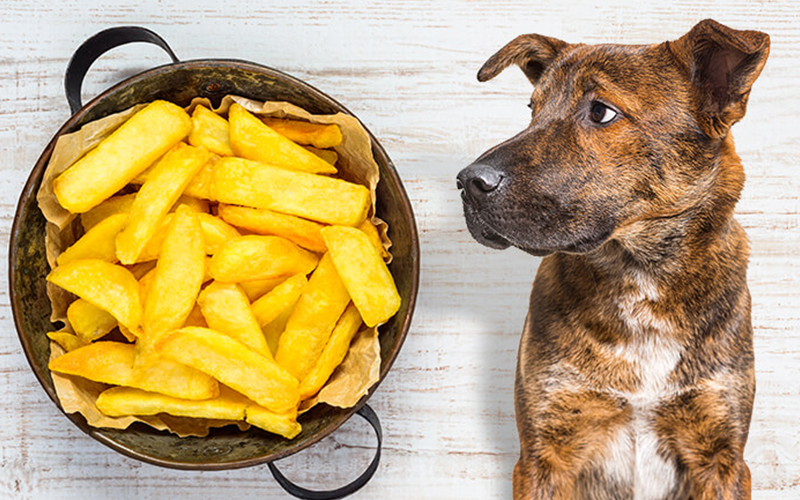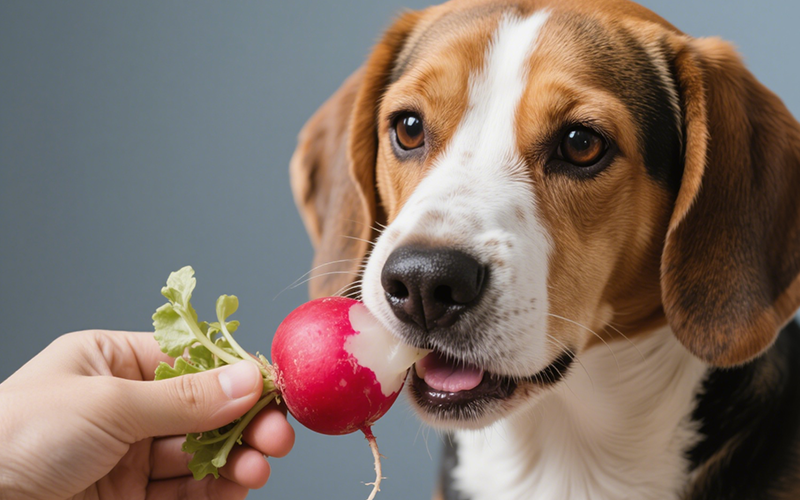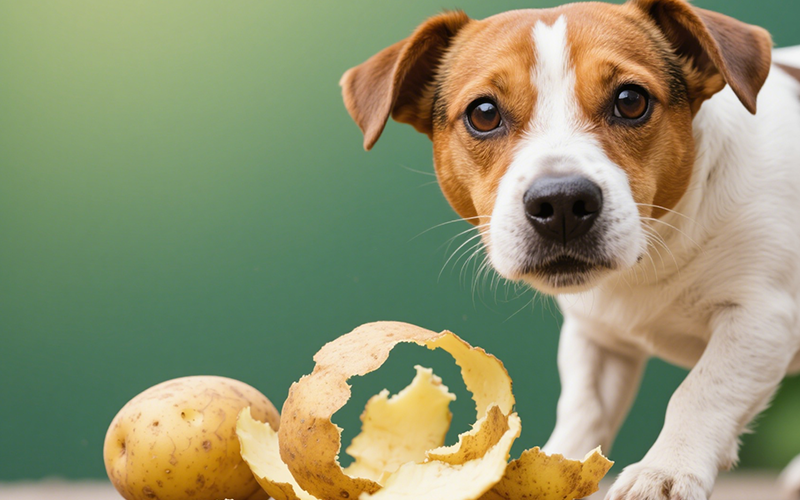Can Dogs Eat French Fries? Understanding the Risks and Safe Alternatives
- 28 Feb 2025 09:36
French fries are a popular fast food snack enjoyed by many people worldwide, but as a dog owner, you might wonder if it's safe to share these crispy treats with your furry friend. While it’s tempting to share food with your dog, it's important to know which human foods are safe and which ones could be harmful. In this article, we’ll explore whether dogs can eat French fries, the potential risks involved, and safer alternatives.

Are French Fries Safe for Dogs?
No, dogs should not eat French fries regularly. While a small amount of plain, unsalted French fries won’t immediately harm most dogs, they are not a healthy snack and should be avoided in your dog’s regular diet. French fries are typically high in fat, salt, and carbohydrates, which can contribute to various health problems for your dog if consumed frequently.
Risks of Feeding French Fries to Dogs
Here are some of the key risks associated with feeding French fries to dogs:
High in Fat: French fries are deep-fried in oil, which makes them high in fat. Excessive fat intake can lead to obesity, pancreatitis, and other health issues in dogs. Pancreatitis, in particular, can cause symptoms such as vomiting, abdominal pain, and lethargy, and it may require veterinary treatment.
High in Salt: French fries are often seasoned with a lot of salt, and too much sodium can be harmful to dogs. High salt intake can cause dehydration, excessive thirst, vomiting, and in severe cases, sodium ion poisoning. Dogs that eat a lot of salty foods are also at risk of developing kidney problems over time.
Choking Hazard: French fries are sometimes served in large, chunky pieces that could present a choking hazard, especially for smaller dogs. While fries are soft, they can be difficult for some dogs to chew properly, especially if they are consumed too quickly.
Digestive Upset: Dogs' digestive systems are not designed to process human junk food, especially foods that are high in fat and carbohydrates. Feeding French fries can lead to stomach upset, including diarrhea, vomiting, and gas. In some cases, excessive consumption can cause longer-term digestive issues.
Empty Calories: French fries provide very little nutritional value for dogs. While they may be tasty, they don't offer the necessary vitamins, minerals, or nutrients that contribute to a balanced diet. Regularly feeding French fries can contribute to weight gain without providing your dog with essential nutrients.
What to Do if Your Dog Eats French Fries
If your dog accidentally eats a French fry or two, it's not likely to cause immediate harm, especially if it was a small portion. However, you should be mindful of the quantity and the frequency with which French fries are given to your dog.
Here’s what to do if your dog eats French fries:
Monitor for Symptoms: Keep an eye on your dog for any signs of discomfort, such as vomiting, diarrhea, lethargy, or excessive thirst. If your dog shows any of these symptoms, it could indicate digestive upset or excessive sodium intake.
Call Your Veterinarian: If your dog consumes a large amount of French fries or seems to be in distress, it’s best to contact your veterinarian. They can help you assess whether further action is needed, such as inducing vomiting or monitoring for signs of pancreatitis or other conditions.
Offer Water: If your dog has eaten salty French fries, make sure they have access to plenty of fresh water to help flush out any excess sodium. Keeping your dog hydrated is important, especially if they are showing signs of dehydration.
Safe Alternatives to French Fries for Dogs
If you’re looking for safe and healthy treats to give your dog, there are many better options than French fries. Here are some healthy alternatives that can satisfy your dog’s cravings for a snack:
Sweet Potato Fries: Instead of regular French fries, you can make baked sweet potato fries at home. Sweet potatoes are packed with fiber, vitamins, and minerals, and they’re much healthier than regular fries. Just slice them into thin strips, bake them without oil or salt, and serve them as an occasional treat.
Carrot Sticks: Carrots are a great low-calorie snack that’s safe for dogs. They are high in fiber and vitamins, and they can help with your dog’s dental health by providing a natural chewing action.
Apple Slices (without seeds): Apples are a healthy and refreshing snack for dogs. They are rich in vitamins A and C and can be a good source of fiber. Be sure to remove the seeds and core before feeding apples to your dog, as they can be harmful.
Frozen Banana Bites: Freeze small banana slices and offer them to your dog as a cool and refreshing treat. Bananas are rich in potassium and fiber, making them a healthy option for most dogs.
Homemade Dog Biscuits: You can bake homemade dog treats using simple ingredients like oats, pumpkin, and peanut butter. These treats can be customized to your dog’s taste preferences and offer a healthier alternative to store-bought snacks.
Green Beans: Green beans are a healthy, low-calorie snack that dogs can enjoy. They are rich in fiber, and their crunchy texture can help clean your dog’s teeth.
Conclusion: Can Dogs Eat French Fries?
French fries should not be a regular part of your dog’s diet. While a small, plain French fry might not immediately harm your dog, the high fat, salt, and empty calories in French fries make them an unhealthy choice. Regular consumption of French fries can lead to obesity, digestive issues, and more serious health problems such as pancreatitis.
Instead of giving your dog French fries, consider healthier alternatives like sweet potato fries, carrot sticks, or apple slices. These snacks offer better nutritional value and are much safer for your dog to enjoy.
For pet owners seeking personalized advice on dog nutrition and safe treat options, consider using PettureX, an AI-powered pet health assistant. PettureX provides 24/7 consultations on pet health and nutrition, helping you make informed decisions about what to feed your dog and ensuring they stay healthy and happy. With PettureX, you can rest assured that your dog’s diet is balanced and safe.
Related

Radish Bites for Your Buddy? A Vet-Reviewed Guide on Whether Dogs Can Eat Radishes
- 22 Apr 2025
Potato Peels for Pooches? Unpeeling the Risks and Facts for Dog Owners
- 22 Apr 2025
Crunchy Curiosity: Can Dogs Safely Snack on Pork Rinds? A Deep Dive
- 21 Apr 2025
Pomegranate Seeds and Pooches: A Deep Dive into Whether Dogs Can Safely Indulge
- 21 Apr 2025
Can Dogs Eat Peaches? Vet Explains Benefits, Cyanide Risks & Safe Serving
- 16 Apr 2025
Can Dogs Eat Mulberries? Vet Explains Safety, Benefits & Potential Risks
- 16 Apr 2025
Can Dogs Eat Mozzarella? Vet Explains the Cheesy Truth (Risks & Benefits)
- 16 Apr 2025
Can Dogs Eat Maple Syrup? The Sugary Truth & Why Vets Advise Against It
- 16 Apr 2025
Can Dogs Eat Mango Skin? Vet Explains Why It's a Risky Chew!
- 16 Apr 2025
Can Dogs Eat Mac n Cheese? Vet Explains Why This Comfort Food Is Unsafe!
- 16 Apr 2025
